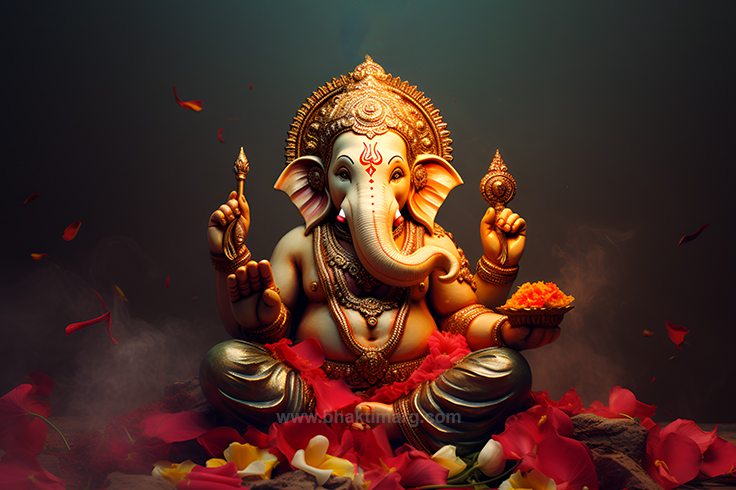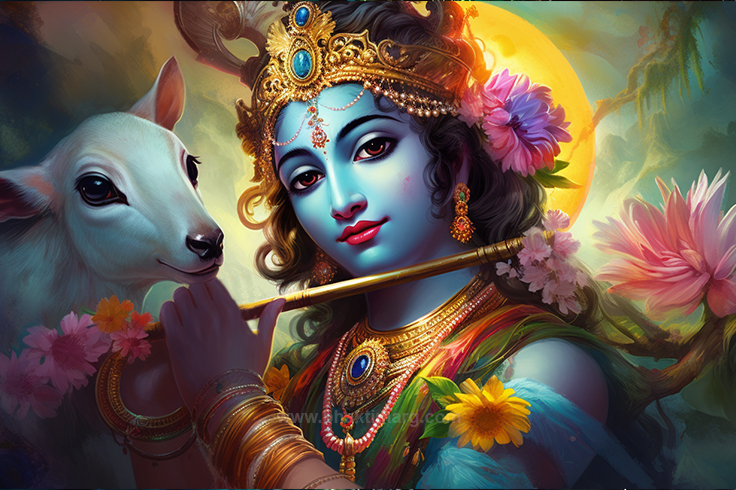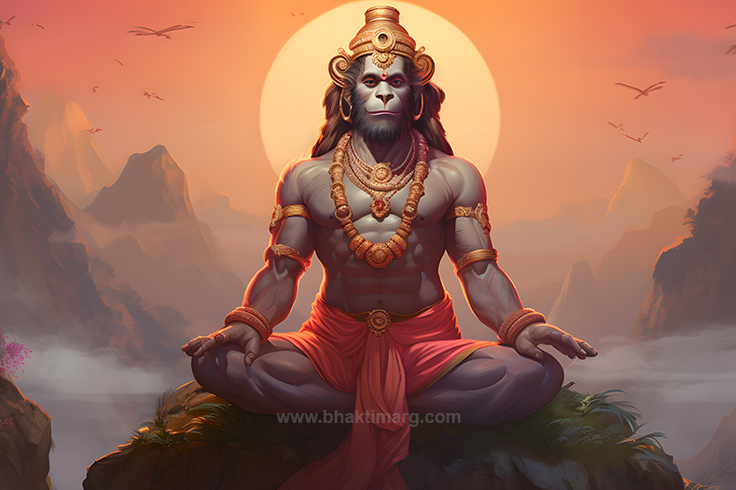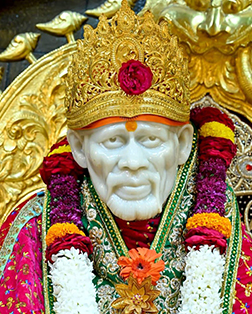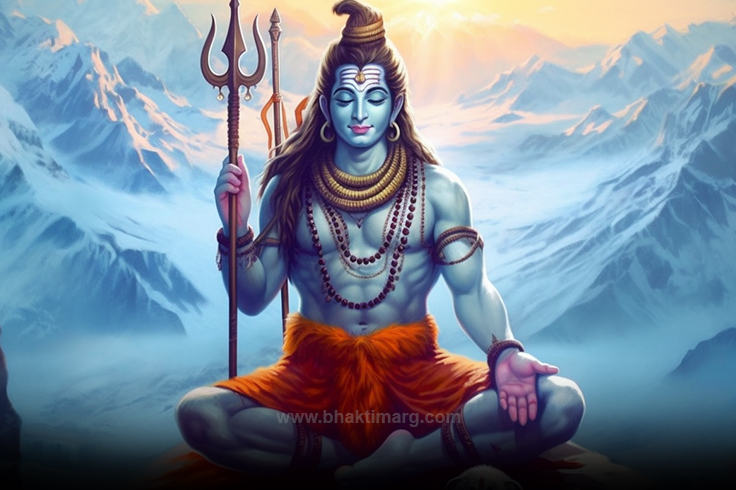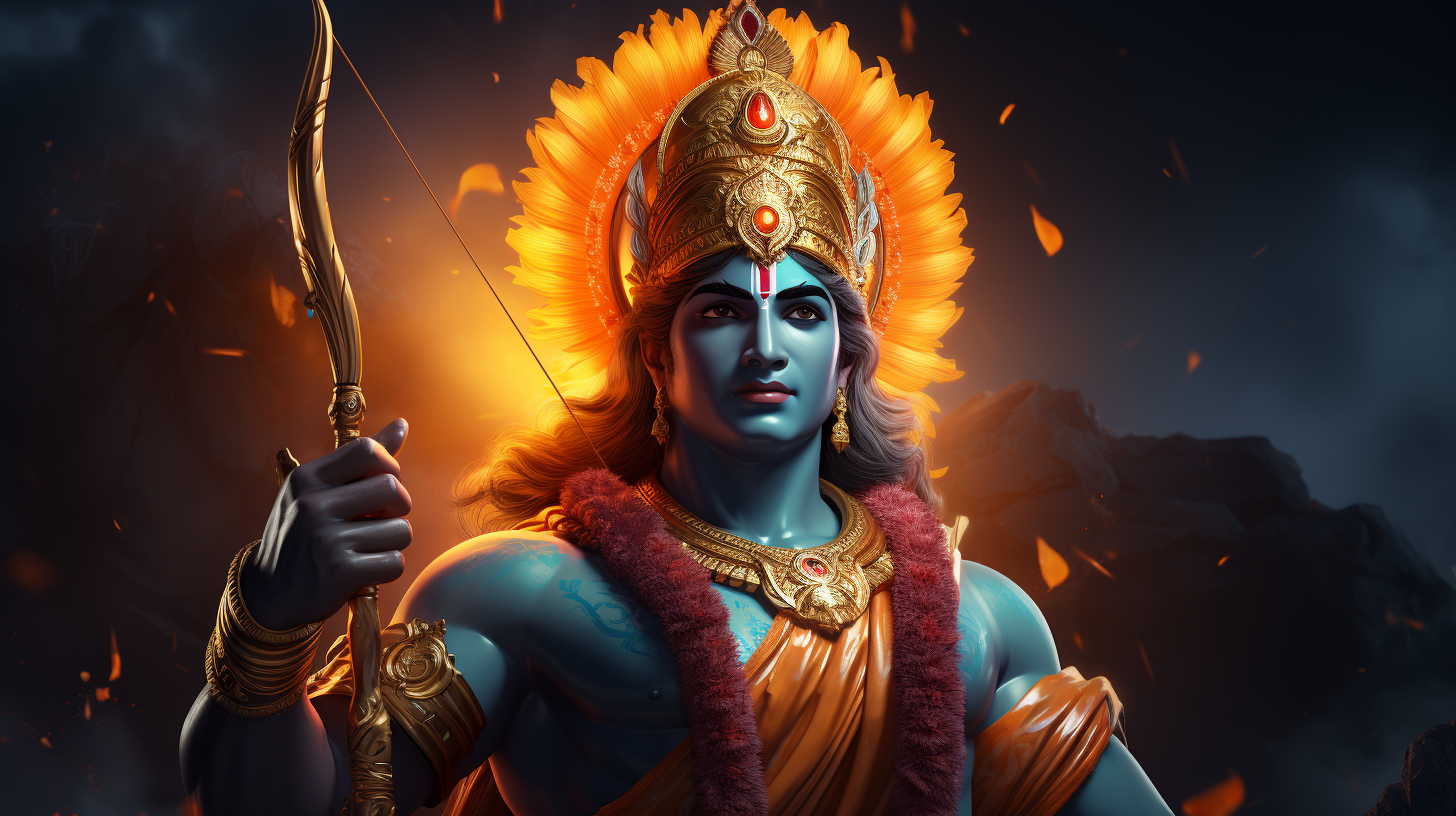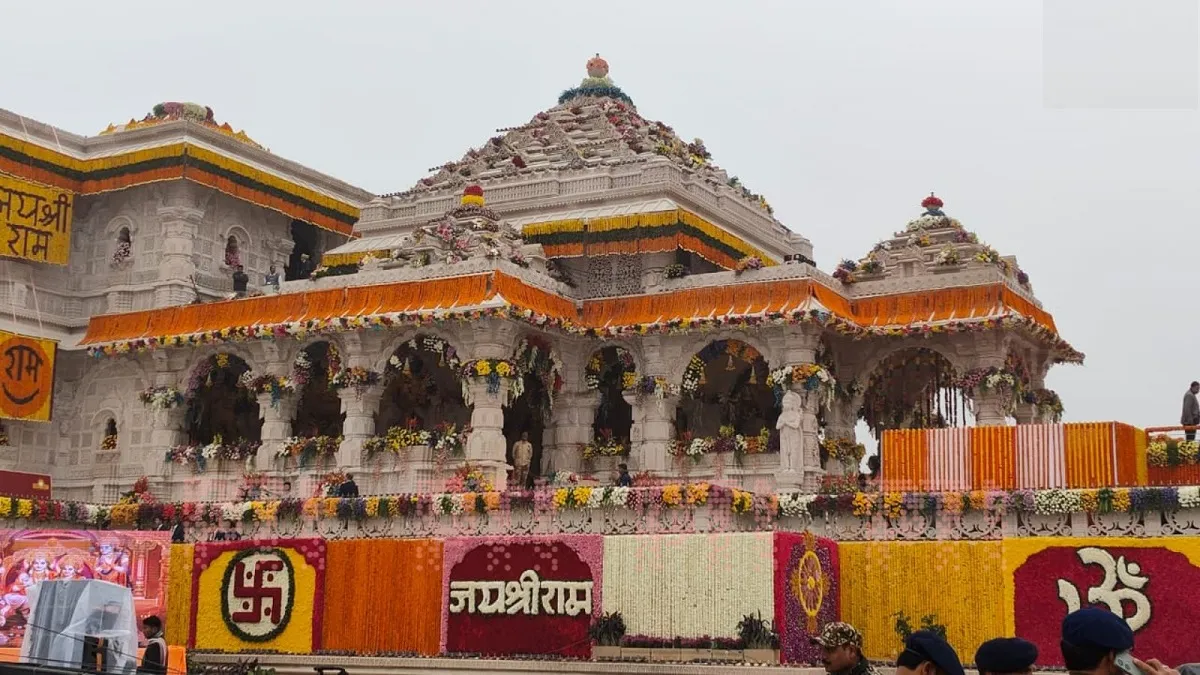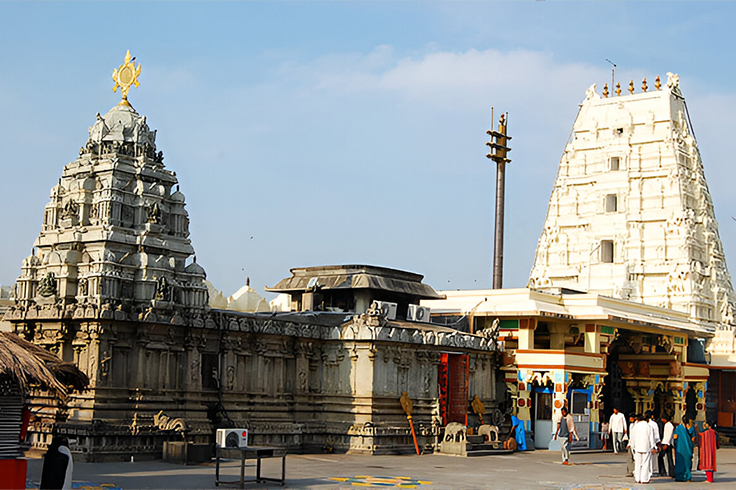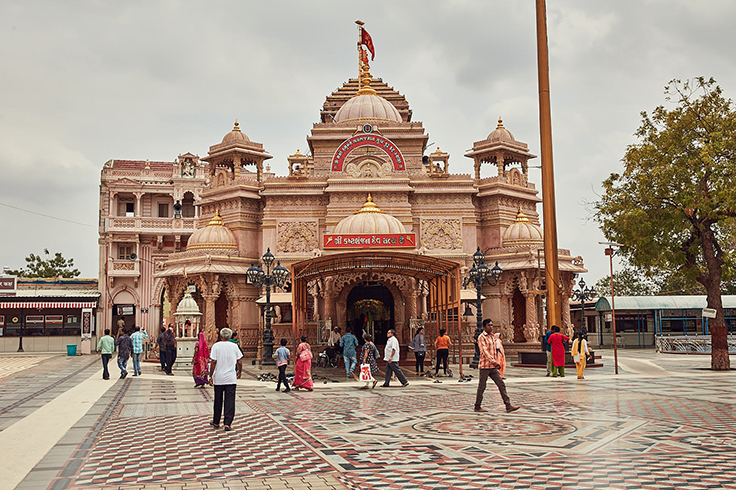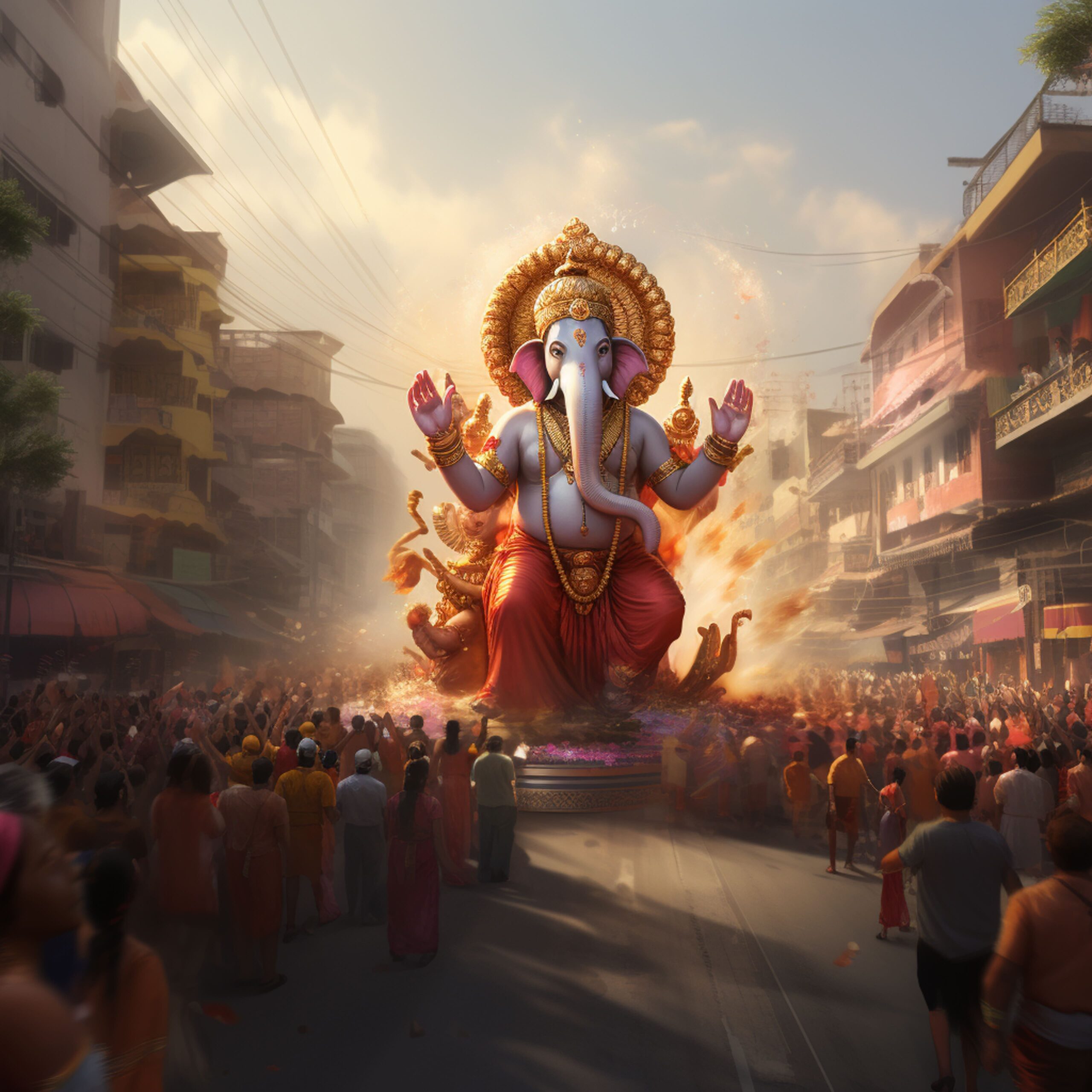Shri Ram Stuti Lyrics in English
Shri Ramachandra Kripalu Bhajman
Harana Bhavabhaya Daarunam ।
Navakanja Lochana Kanja Mukhakara,
Kanja Pada Kanjaarunam ॥ 1 ॥
Kandarpa Aganita Amita Chhav Nava,
Neela Neerara Sundaram ।
Patapita Maanahum Tadita Ruchi Shuchi,
Navmi Janaka Sutaavaram ॥ 2 ॥
Bhaju Deena Bandhu Dinesh Daanav,
Daityavansha Nikandanam ।
Raghunanda Aananda Kanda Kaushala,
Chanda Dasharatha Nandanam ॥ 3 ॥
Sira Mukuta Kundala Tilaka Chaaru,
Udaaru Anga Vibhooshanam ।
Aajaanu Bhuja Shara Chaapadhara,
Sangraama-jita-khara Dooshanam ॥ 4 ॥
Iti Vadati Tulsidas Shankar,
Shesha Muni Manaranjanam ।
Mama Hridayakanja Nivaas Kuru,
Kaamaadi Khaladal Ganjanam ॥ 5 ॥
Manu Jaahin Raacheu Milihi so Baru,
Sahaja Sundara Saanvaro ।
Karuna Nidhaan Sujaan Seelu,
Sanehu Jaanat Raavaro ॥ 6 ॥
Ehi Bhaanti Gauri Asees Suni Siya,
Sahita Hiyan Harashi Ali ।
Tulsi Bhavaanihi Pooji Puni Puni,
Mudit Man Mandir Chalee ॥ 7 ॥
॥ Sortha ॥
Jaani Gauri Anukool,
Siya Hiya Harashu Na Jaye Kaheen ।
Manjula Mangala Moola,
Bam Anga Pharkana Lage ॥ 8 ॥
Shri Ramachandra Kripalu Bhajman—popularly known as Shri Ram Stuti—is one of the most loved hymns composed by the revered saint Goswami Tulsidas Ji, the author of Ramcharitmanas. This soulful composition praises Lord Rama’s divine beauty, compassion, and heroic deeds. Each verse is filled with heartfelt devotion, inspiring love, humility, and surrender to Shri Rama, the embodiment of dharma and righteousness.
Meaning (Verse-wise Summary)
Verse 1:
O mind, adore the merciful Shri Rama—who removes the terrible fear of worldly existence. His eyes are like blooming lotus petals, his face and hands glow like a lotus, and his feet shine with the redness of the morning sun.
Verse 2:
Lord Rama’s beauty surpasses even innumerable Cupids. His dark blue complexion resembles a fresh rain cloud, and his yellow attire glows like lightning. He is the beloved consort of Janaka’s daughter, Sita Ji.
Verse 3:
Worship the friend of the humble, the Lord of the sun dynasty, the destroyer of demons, and the source of joy to Kaushalya Devi—beloved son of King Dasharatha.
Verse 4:
He wears a crown, earrings, and a shining tilak. His arms are long, his body adorned with divine ornaments, and he holds a bow and arrows—victorious over the demons Khara and Dushan.
Verse 5:
Tulsidas Ji declares: “O Lord Rama, delight of Shankara and the sages, please dwell in my heart’s lotus and destroy all desires and evils within me.”
Verse 6–7:
When Mother Gauri blesses Sita before her marriage, she assures her that her chosen Lord Rama is gentle, wise, compassionate, and divinely beautiful. Hearing this, Sita’s heart fills with joy and devotion.
Verse 8 (Sortha):
As Sita realizes Goddess Parvati’s blessings, her heart overflows with happiness—symbolizing the auspicious union of divine love and virtue.
Spiritual Significance
Shri Ram Stuti is not just a praise of divine beauty—it is an invocation of spiritual qualities:
- Compassion: Reminds devotees that kindness is the highest virtue.
- Courage & Righteousness: Inspires one to stand by truth and duty.
- Inner Peace: Helps overcome fear, anger, and worldly attachments.
- Bhakti (Devotion): Deepens faith in Lord Rama and his eternal presence.
This hymn is often sung during Rama Navami, Vijayadashami, or during daily morning and evening prayers, creating an atmosphere of serenity and devotion.
Benefits of Chanting Shri Ram Stuti
- Removes fear, sorrow, and confusion from the mind
- Promotes positivity, stability, and emotional healing
- Encourages righteous living aligned with dharma
- Invokes divine protection and spiritual growth
- Purifies thoughts and strengthens concentration in meditation
Regular recitation with devotion brings peace to the heart and harmony to one’s surroundings.
How to Chant
- Sit peacefully, ideally facing east in your prayer space.
- Light a diya or incense, and meditate briefly on Lord Rama’s form.
- Chant the stuti slowly, focusing on the meaning.
- End with gratitude or a short prayer for inner strength and compassion.
The Shri Ram Stuti is a timeless hymn of love, courage, and divine grace. Every verse fills the heart with light, reminding devotees that Lord Rama’s compassion and protection are ever-present. Reciting it regularly fosters peace, devotion, and a life guided by dharma.
For more sacred hymns, detailed meanings, and devotional insights, visit Bhakti Marg, your path to discovering divine love through knowledge, mantra, and inner devotion.



